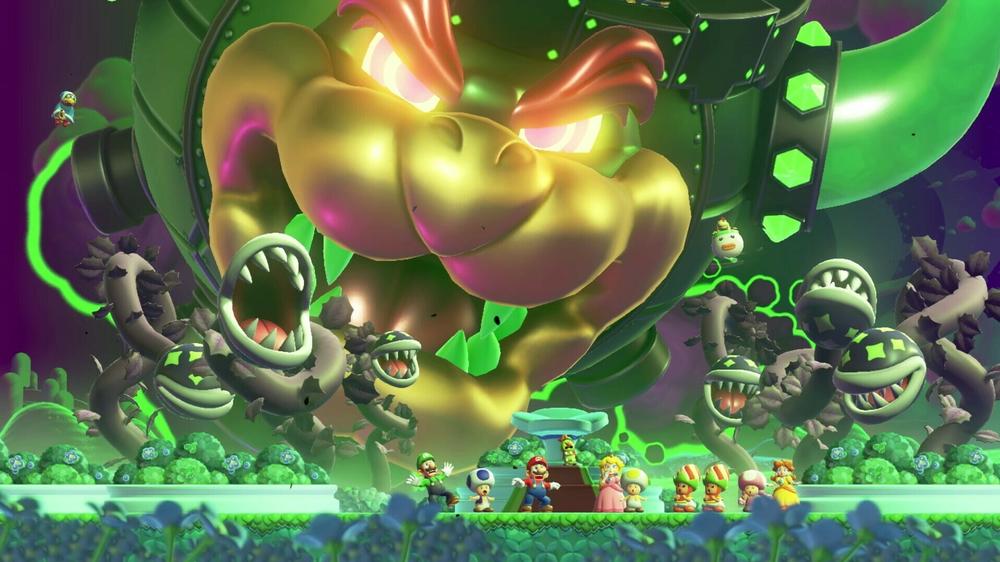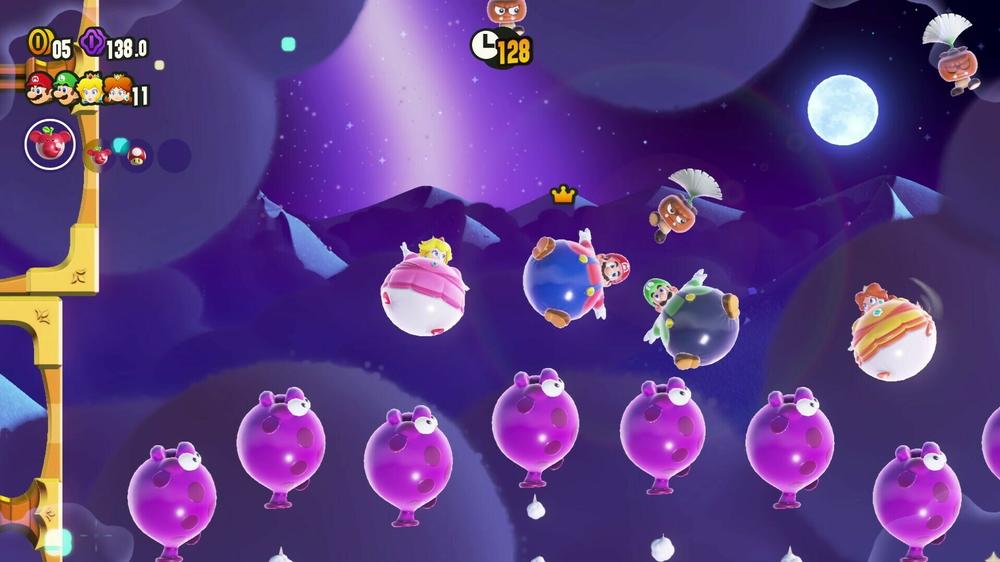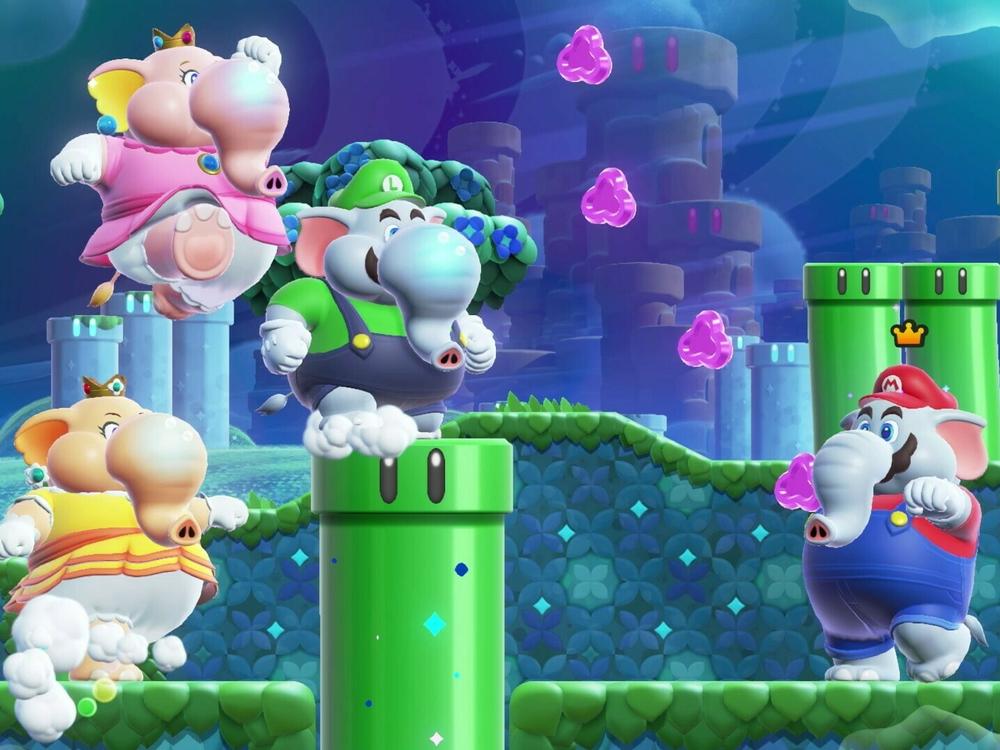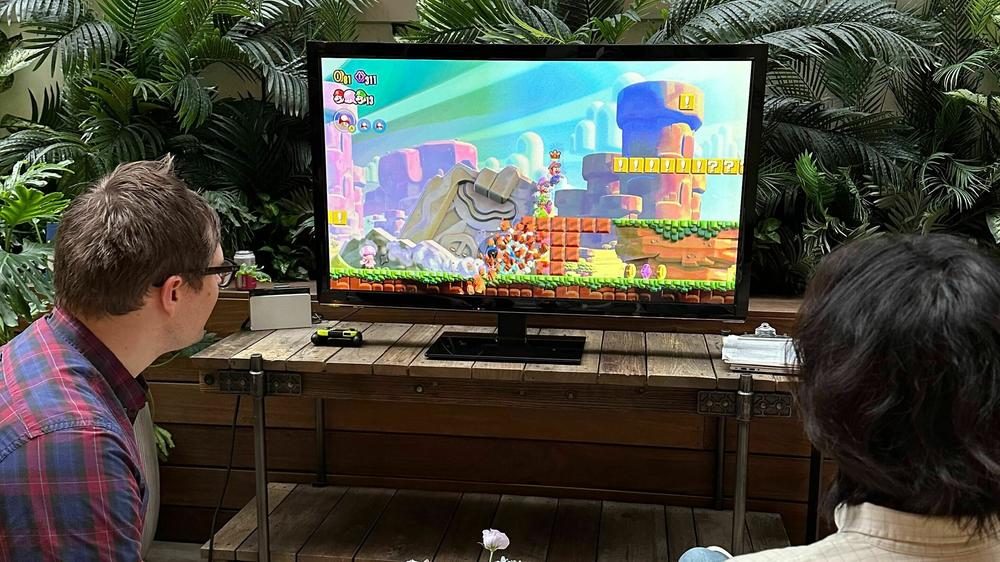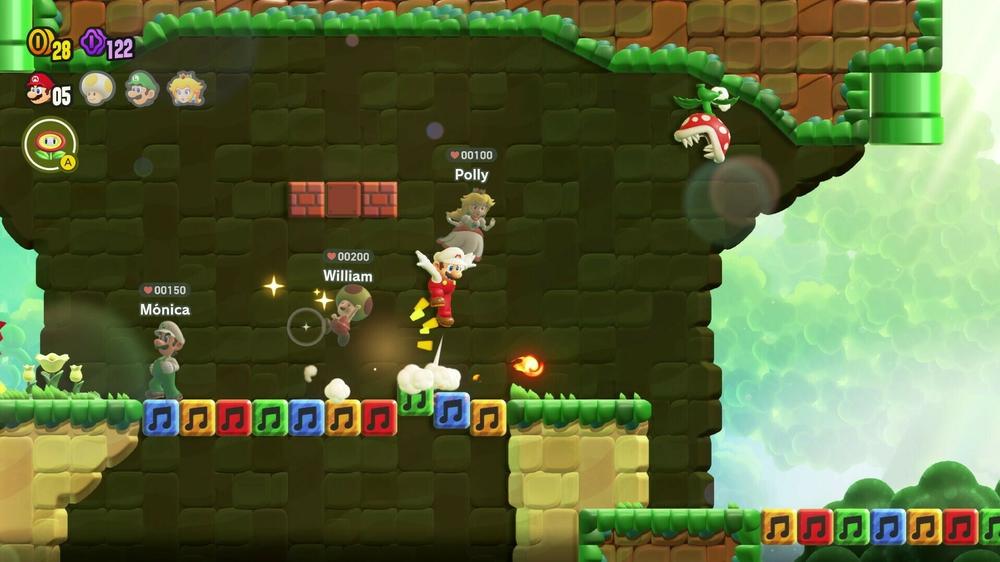Section Branding
Header Content
'Super Mario Bros. Wonder' makers explain new gameplay — and the elephant in the room
Primary Content
For the first time in over a decade, Mario is coming home. No, not to the Mushroom Kingdom — but to an entirely new game in the side-scrolling format that made Nintendo a household name.
Super Mario Bros. Wonder releases October 20th. It's an homage to the 2D games in the series, but it's also bold, trippy, and frenetic. We had the chance to preview Wonder, and sit down with director Shiro Mouri and producer Takashi Tezuka, who designed the original Super Mario Bros. in 1985 with Shigeru Miyamoto.
"With traditional Mario gameplay, you have to figure out how to get from one point to the next point," explained Tezuka. "This time, more than we've done in the past, we have many different choices to choose from."
A wonderful world
Wonder begins with the usual fare — enemies, pits, pipes, etc. — but each level also contains a "Wonder Flower," which, once discovered, turns gameplay completely on its head. In the hour we had with the game, different flowers transformed us into Goombas, spawned a stampede that carried us way past the usual end of the level, and puffed us up like balloons. Each Wonder Flower launches something like an unpredictable Mario Party minigame, but comes smack in the middle of the platforming action.
Wonder also features the most expansive cast of playable characters in 2D Mario yet — including not only the erstwhile plumber but also Luigi, Peach, Daisy, Toadette, Nabbit, two differently-colored Toads and four differently-colored Yoshis — all aiding the new Flower Kingdom against an invading Bowser whose own encounter with a Wonder Flower changed him into a monstrous flying castle.
The game boasts familiar items like the Super Mushroom and Fire Flower, but also new power-ups that let you drill into floors and walls, blow bubbles to trap adversaries, and transform into an elephant, a feature that took the internet by storm when it was first revealed in a trailer.
Director Shiro Mouri said he wanted the elephant power-up to accomplish three design goals: "The first to have a body that's a little bit bigger," enabling the player to grab coins and stomp on enemies easier. The second goal was to allow Mario to "hit blocks from the side," enabling players to access new areas. Thirdly, the elephant can spray water. "By watering a withered flower, you might be able to experience or discover something new," said Mouri. "Having a slightly bigger body, being able to attack blocks from the side and being able to spray water — I mean, the elephant's the only natural answer to this," he added with a grin.
Mario platforming with unique builds
Wonder even introduces RPG mechanics to the Super Mario Bros. formula. You collect purple coins to spend on "badges" that grant abilities like a high jump. These skills aren't inherent to individual characters anymore: Peach, for example, doesn't come equipped with her signature "floaty" jump — instead, you can unlock the move and equip it on her, or on anyone.
"Because we separated out the character from the abilities, we had room to then come up with some wacky abilities," said Mouri. "There's a badge that turns you invisible. We thought this might be a fun way for higher level players to experience the game in a different way."
Conversely, other badges provide passive boosts that can make the game easier. One automatically bounces you back up if you fall into a hole. Another lets you accumulate more coins. "We've made it so that depending on how you play," said Mouri, "you can select badges that really match that playstyle."
Only one badge, active or passive, can be equipped at a time — and that goes for the entire team of up to four players on the same console. Mouri saw imposing that limitation as an opportunity for lively debate: "When you're playing local and have just one shared badge, there's a lot of discussion and a kind of shared experience, and that's what we wanted to create here."
Helpful spirits and talking flowers
Beyond local play, Wonder also features the most robust online implementation out of any Mario platformer to date. Not only can you create lobbies of up to twelve friends for challenge runs and races, you can also turn on passive multiplayer to see transparent "ghosts" of players from around the world, running a level alongside you, leaving customizable "Standees" (cutouts of their characters) behind as they go.
These afterimages resemble the phantoms of Dark Souls or Elden Ring — only they're entirely friendly. "If you play online, only good things happen," Mouri assured us. "You can get a clue or hint from seeing how other players are playing." If you perish, you can float to another player's ghost or Standee to revive.
The first playthrough of a Wonder level can definitely trigger a sensory overload. What's this power-up? What's that player ghost doing? Okay, I just touched the Wonder Flower — now what the shell is going on? Thankfully, the traditional countdown timer is gone, so you can explore stages for as long as you like, and you're encouraged to replay levels with different badge builds to access new secrets.
New "talking flowers" also aid the quest to find the game's many mysteries. Born from Tezuka's desire to add an announcer to the game, the googly-eyed flora shout encouragement or hints as you pass by them. While these flowers feature full voice-acting in numerous languages, Mario and the rest of the cast remain mostly speechless, which makes the experience feel all the more surreal.
A feast for the eyes
Wonder's aesthetic also lives up to the name — it's more visually striking than past titles. "Traditionally, our development costs have gone into the gameplay experience itself," says producer Takashi Tezuka. "Of course that's absolutely essential. But this time we really wanted to pour some of that into the animations."
The game's movement indeed pops with renewed vitality: when Mario crouches, he pulls his hat way down over his head, and when he goes down pipes as Elephant Mario, he really has to squeeze. Tezuka notes that this expressiveness should appeal to new players brought in by this year's blockbuster Mario movie: "People who are coming from the Mario movie are going to see that and think 'this is what Mario does, this is how Mario moves,' and we wanted them to experience something similar to that."
We didn't get the chance to ask Tezuka and Mouri about perhaps the biggest revelation from our preview, however. In Wonder, Yoshis can ride other Yoshis. We'll leave it to the scientists and philosophers to unpack the implications.
Super Mario Bros. Wonder releases exclusively on the Nintendo Switch October 20th.
Copyright 2023 NPR. To see more, visit https://www.npr.org.
